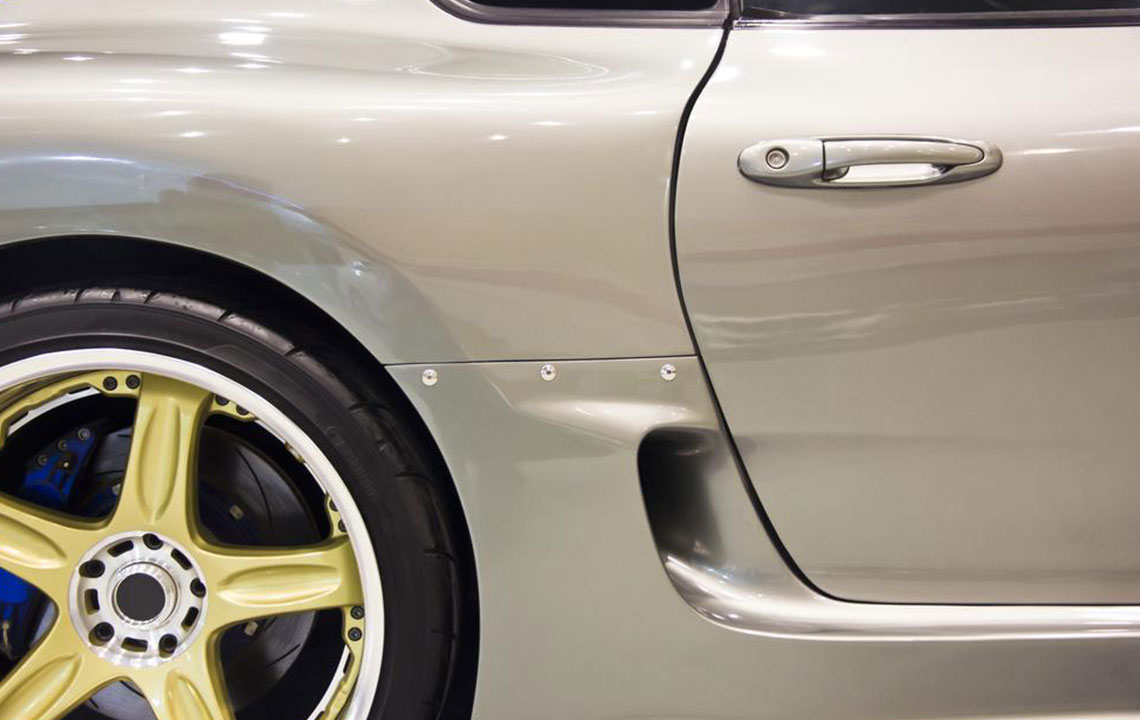Comprehensive Guide to Buying a Classic Corvette: Essential Tips for Enthusiasts and Collectors
This comprehensive guide offers essential tips for buying a classic Corvette, including expert inspection advice, historical research, understanding engine options, and navigating model-specific challenges. Perfect for collectors and enthusiasts, the article helps ensure a wise investment in America’s iconic sports car, emphasizing thorough assessments and historical knowledge to avoid costly pitfalls and secure a valuable, authentic vintage Corvette.

Comprehensive Guide to Buying a Classic Corvette: Essential Tips for Enthusiasts and Collectors
For car enthusiasts and collectors worldwide, few vehicles symbolize American automotive innovation and performance quite like the Chevrolet Corvette. Known colloquially as America's sports car icon, the Corvette has a rich history dating back to its debut in 1953. From its humble beginnings, the Corvette evolved into a symbol of power, design excellence, and technological advancements. If you’re contemplating purchasing a vintage Corvette, whether for collection, hobby, or personal enjoyment, understanding the nuances of the market and what to look for is crucial. This comprehensive guide aims to provide all the essential tips needed to make an informed decision when purchasing a classic Corvette on the market today.
The journey to owning a vintage Corvette begins with knowledge. The Corvette's early models, starting with the C1 series, faced initial challenges in sales, but each subsequent generation built upon the last, establishing the model as an enduring American legend. From the iconic Stingray to the modern ZR1, these cars combine aesthetic appeal with engineering excellence. Nonetheless, buyers should approach vintage Corvette purchases with caution, vigilance, and thorough research to ensure they acquire a vehicle that meets their expectations in terms of performance, condition, and authenticity.
Hire an Experienced Classic Car Mechanic
When purchasing a vintage Corvette, especially one that’s several decades old, having a professional mechanic conduct a detailed inspection is indispensable. Experts specializing in Corvettes can identify signs of wear, previous modifications, or damage that might not be apparent during a casual viewing. Their expertise enables them to assess crucial components such as the engine, transmission, suspension, and braking systems. A thorough inspection will help determine whether the vehicle has been properly maintained or if it requires significant repairs, which can significantly influence the overall cost and value.
Come prepared with a list of specific questions to guide the mechanic's assessment. Inquire about the condition of engine internals, signs of rust or corrosion, frame integrity, and the authenticity of engine modifications. Paying attention to details like oil leaks, tire wear, and brake responsiveness can reveal much about a car’s history and current condition. Remember, investing in expert assistance upfront can save you substantial headaches and expenses down the line.
Research the Background and History of the Specific Model
Not all Corvette models are created equal. Some editions are more renowned for their performance, rarity, and historical significance than others. For instance, models like the 1967-1969 Corvette L88 are highly coveted for their rarity and potent small-block engines, while the 1990-1995 Corvette ZR-1 gained recognition for advanced engineering and exceptional performance. Conversely, some models faced reliability issues, production challenges, or design flaws that impacted their desirability and value. Conduct comprehensive research into the specific generation you are interested in, including production numbers, factory options, and notable features.
Pay particular attention to redesign years or editions with known flaws. For example, the 1984 Corvette underwent significant updates, but some early models had quality control issues. Understanding the history of each model helps in assessing the potential risks and benefits associated with your purchase.
Be Mindful of Power Limitations in Mid-1970s Models
The mid-1970s marked a challenging period for Corvette enthusiasts. During these years, the Corvette's power output was intentionally reduced due to energy crises, tightening emission regulations, and insurance considerations. For example, the 1975 base model produced just 165 horsepower, a significant decrease compared to previous years. Although these models maintained market appeal, their performance often fell short of the high standards set by earlier editions, making them less desirable among collectors seeking raw power.
If performance is a primary goal, pay close attention to the engine specifications and historical performance data of mid-70s models. While some enthusiasts appreciate the historic significance of these vehicles, others prioritize high horsepower figures and advanced engineering, which may influence your buying decision.
Verify Engine Types and Specifications Carefully
One of the most critical aspects of a vintage Corvette is its engine. Chevrolet offered two primary engine types between 1965 and 1974: small-block and big-block engines. The small-block engines are generally more reliable, fuel-efficient, and easier to maintain, whereas big-block engines are known for their impressive torque and acceleration capabilities. However, big-block engines tend to generate more heat, which could present challenges, especially in colloquial city driving or hot climates.
Before finalizing a purchase, verify the exact engine type installed in the vehicle, as this significantly affects performance, maintenance requirements, and overall authenticity. Some models may have undergone modifications, swapping out original engines for different variants or aftermarket options, which can impact value and originality. Authenticity matters greatly if you are a collector, so ensuring the engine matches the factory specifications and original build sheet can enhance your investment.
In addition, assessing the condition of the engine, including compression levels, signs of leaks, and the state of ancillary components such as the alternator and hoses, is essential. A well-maintained engine can dramatically improve the driving experience and resale value.
In conclusion, purchasing a classic Corvette requires patience, diligent research, and expert guidance. Whether you’re a seasoned collector or a first-time buyer, understanding the nuances of each model’s history, specifications, and common issues will enable you to make an informed decision. Remember, a well-preserved vintage Corvette is not just a car but a piece of American automotive history that can provide years of enjoyment and appreciation.




